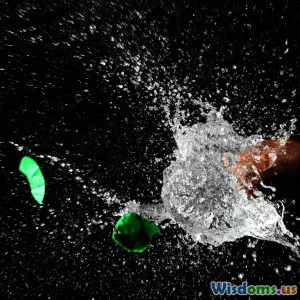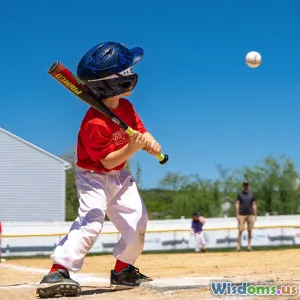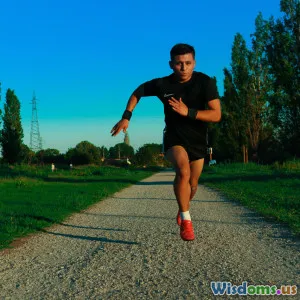
Hydration Hacks That Actually Improve Your Workout Performance
8 min read Unlock hydration hacks proven to boost workout performance and endurance with expert tips and science-backed strategies. (0 Reviews)
Hydration Hacks That Actually Improve Your Workout Performance
Introduction
Hydration is often an overlooked element in the fitness community, yet it wields a crucial role in determining how well you perform during workouts. Imagine sprinting, lifting, or cycling hard only to have your muscles cramp or fatigue faster than you'd like—often, this problem is linked to dehydration or inadequate hydration strategies. But the question remains: how can you perfectly tailor your hydration habits to fuel optimal workouts and speed recovery?
This article dives deep into hydration hacks that don’t just keep you hydrated but actively improve your workout efficiency, sustain your energy levels, and support muscle health. Backed by scientific evidence and fitness expert advice, these insights will transform the way you approach hydration during any physical activity.
Understanding Hydration and Its Role in Workout Performance
Before jumping into hacks, it’s vital to understand why hydration matters in the context of exercise. Water constitutes roughly 60% of your body weight and is imperative for various physiological functions:
- Regulating body temperature: Sweating cools the body. Without enough fluid, overheating is a risk.
- Transporting nutrients: Water helps deliver oxygen and nutrients to muscles.
- Joint lubrication: Well-hydrated joints reduce injury risk.
- Preventing muscle cramps: Electrolyte balance is water-dependent.
A study published in the Journal of Sports Sciences highlights that losing just 2% of body weight through dehydration can lead to a significant decline in high-intensity aerobic and anaerobic performance.
Hack 1: Pre-Hydrate with Purpose — Don’t Wait Until You’re Thirsty
Many athletes wait until they feel thirsty to drink water, but by then, dehydration has already set in. Experts recommend drinking approximately 500 ml (about 17 ounces) of water 2 hours before exercise to give your kidneys enough time to process fluids.
Example: On training days, professional marathon runners often consume water infused with electrolytes before runs to ensure their plasma volume is optimal, preventing early fatigue.
Hack 2: Balance Water with Electrolytes for Maximum Efficiency
Water alone isn’t always enough. Electrolytes—sodium, potassium, magnesium, and calcium—help retain fluids and aid nerve and muscle function. Sweating causes both fluid and electrolyte loss.
-
When to supplement electrolytes? For workouts longer than 60 minutes, intense training in heat, or prolonged endurance events.
-
Tip: Incorporate sports drinks or electrolyte tablets formulated with low sugar to avoid unnecessary calories.
Data Insight: Research in Nutrients shows that electrolyte-enhanced hydration strategies maintain better fluid balance and delay the onset of fatigue during endurance events.
Hack 3: Sip Smartly — Don’t Overhydrate and Avoid Chugging
Chugging large amounts of water can lead to hyponatremia—dangerously low sodium levels—which impairs performance and can even be fatal. Instead, sip about 150-250 ml every 15-20 minutes during exercise.
- Use a water bottle with measurements
- Set reminders on your smartwatch or phone
Real-World Insight: Triathlete Gwen Jorgensen revealed how adopting structured sipping over gulping helped her avoid stomach cramps and maintain consistent power output.
Hack 4: Incorporate Natural Hydration Boosters
Foods can be a strategic component of hydration:
- Water-rich fruits and vegetables: Watermelon, cucumbers, oranges, and strawberries provide hydration with bonus vitamins.
- Coconut water: A natural electrolyte-rich drink with less sugar than many processed sports drinks.
Example: Collegiate athletes report improved hydration and energy levels when combining traditional fluid intake with snacks like sliced oranges or berries during breaks.
Hack 5: Monitor Hydration Status with Practical Tools
Relying solely on thirst cues is insufficient. Instead, adopt simple monitoring methods:
- Urine Color: Pale yellow urine indicates good hydration; dark yellow signals a need for fluids.
- Bodyweight Check: Weigh yourself before and after exercise. Losing over 2% body weight suggests insufficient hydration.
Fitness Expert Take: Dr. Stacy Sims, a leader in sports physiology, emphasizes personalized hydration protocols based on these markers to optimize performance for every athlete.
Hack 6: Tailor Hydration to Environmental Conditions and Exercise Type
Humidity, temperature, and workout intensity affect hydration needs drastically.
- Hot and humid environments increase sweating by up to 65%, demanding more aggressive hydration.
- High-intensity interval training (HIIT) causes rapid fluid loss even in cooler conditions.
Adjust fluid and electrolyte intake accordingly to prevent premature fatigue or heat-related illnesses.
Hack 7: Post-Workout Hydration for Faster Recovery
Hydration isn’t only critical during a workout—it plays a crucial role in recovery too. Replenishing fluids and electrolytes post-exercise accelerates muscle repair, reduces soreness, and restores metabolic balance.
-
Clinical Study: According to research in the International Journal of Sport Nutrition and Exercise Metabolism, post-workout fluids with a 3:1 carbohydrate to protein ratio and electrolytes reduced muscle damage markers more effectively than water alone.
-
Consider variations of recovery drinks or homemade shakes with water, electrolyte powder, and natural sweeteners.
Conclusion
Hydration is an enormously powerful tool in your fitness arsenal. But it requires more than just drinking water—it demands a strategic, science-driven approach tailored to your body’s needs and workout conditions.
By pre-hydrating, including electrolytes, sipping consistently, leveraging hydrating foods, monitoring your status smartly, adapting to climate and activities, and focusing on post-workout replenishment, you create a comprehensive hydration plan that ultimately boosts performance and endurance.
Start applying these hydration hacks today for workouts that not only feel better but also deliver better results. Your body, mind, and muscles will thank you.
References
- Casa, D. J., et al. (2000). The Effects of Hydration Status on Exercise Performance. Journal of Sports Sciences.
- Maughan, R. J., & Shirreffs, S. M. (2010). Development of individual hydration strategies for athletes. International Journal of Sport Nutrition and Exercise Metabolism.
- Sims, S.T. (2017). Personalized Hydration and Sex Differences in Sports Science. Sports Medicine.
- Peeling, P. (2010). Exercise- and sport-induced dehydration performance impairment. Nutrients.
Rate the Post
User Reviews
Popular Posts















